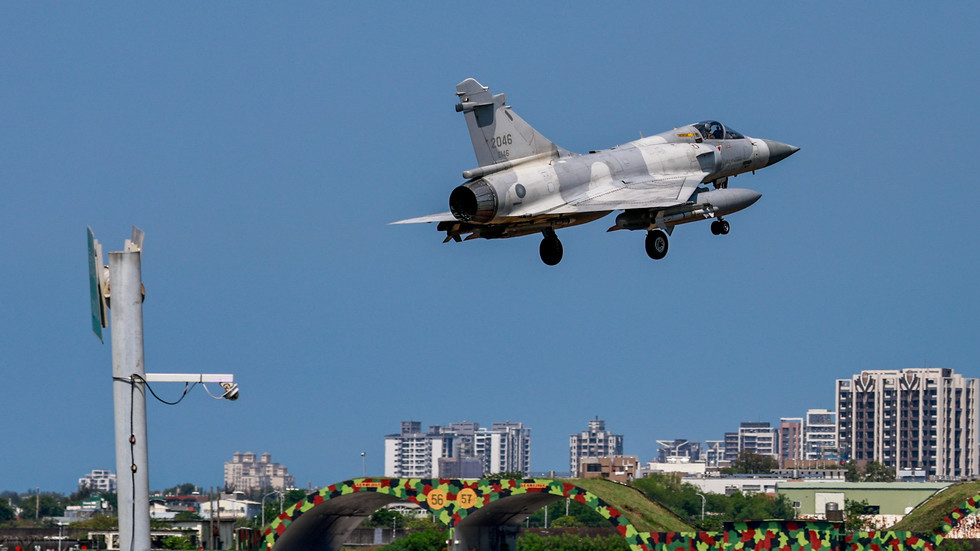In response to escalating tensions in the Taiwan Strait, Taiwanese President Lai Ching-te convened a national security meeting following large-scale military drills conducted by Beijing around the self-governing island. Officials from Taiwan have condemned these exercises as “reckless” and “provocative,” emphasizing their commitment to monitoring Beijing’s activities. Presidential Office spokesperson Karen Kuo reiterated Taiwan’s dedication to maintaining peace and stability in the region and urged China to acknowledge Taiwan’s autonomy and respect its democracy. The Taiwanese government has described its determination to uphold its constitutional system against external threats, asserting that the Taiwanese people have the right to choose their democratic and free way of life.
The Taiwanese Foreign Ministry has vocally criticized Beijing’s military actions, particularly highlighting the provocative nature of the drills that follow Taiwan’s expressed willingness to foster peace in the Taiwan Strait. Stressing the importance of democracy, the ministry has urged China to exercise self-restraint to avoid further destabilizing the region. This calls into question whether Beijing’s military exercises are merely routine maneuvers or part of a broader strategy to assert control over Taiwan, which China views as a breakaway province, despite its self-governing status.
Taiwan’s Defense Ministry has also responded strongly to the situation, pledging to deploy appropriate military forces to safeguard national sovereignty. The remarks reflect a readiness to defend Taiwan against perceived threats from China, demonstrating Taiwan’s resolve in the face of heightened military pressure. The Eastern Theater Command of the Chinese military announced its Joint Sword-2024B exercise, which involves multiple branches of its armed forces and includes activities like combat readiness patrols and strategic blockades around Taiwan, emphasizing that these maneuvers are intended to deter separatist movements advocating for Taiwanese independence.
The scope of the drills, which involve extensive land and sea operations encircling Taiwan, raises concerns about potential military escalation in the region. Beijing has justified these exercises as necessary for national unity and defense of sovereignty, reinforcing its stance that Taiwan is an integral part of Chinese territory. The Chinese leadership has continuously stated that it views reunification with Taiwan as inevitable, leaving open the possibility of military action to achieve this goal, further compounding the tension surrounding the Strait.
The situation has drawn the attention of the United States, Taiwan’s primary supporter. U.S. State Department spokesperson Matthew Miller criticized the military provocations, framing them as an unwarranted escalation amid what was meant to be routine political discourse from Taiwan’s leadership. The U.S. has called for dialogue to ensure stability in the region and avoid actions that may provoke further conflict. President Lai has been vocal in asserting Taiwan’s distinct identity, rejecting any claim by Beijing of authority over the island and highlighting the resolve to resist any form of annexation or encroachment.
These movements from both sides reflect the increasingly complex and sensitive dynamics in the Taiwan Strait, where historical grievances, nationalistic sentiments, and military posturing intersect. As Taiwan continues to assert its sovereignty via democratic means, the prospect of military conflict remains an ever-present concern. The international community watches closely as Taiwan balances its defense strategies and diplomacy, underlining the need for peaceful resolutions in an area marked by deep-seated tensions and competing national interests.

